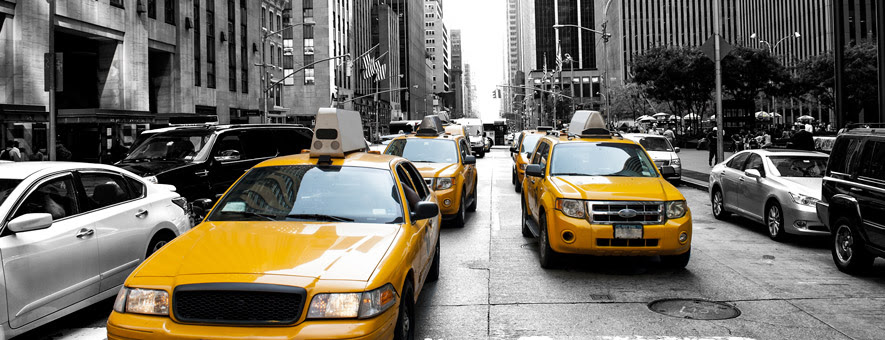
NB: This is an article by Fig Cakar, Managing Director (Americas) at Siteminder
The end of a calendar year is always a great time for reflection assessing your hotel’s success and achievements. It’s the ideal time to set goals for the future and plan your hotel’s business and promotional activity for the next 12 months.
It’s also a good time to look at any industry trends that might affect the way your guests plan to travel over the coming year.
Are travellers planning to dedicate more time to vacations? Which destinations are on must-visit lists? And what technology trends are impacting the way they behave from initial search through to actual experience?
SiteMinder recently partnered with the California Hotel and Lodging Association to answer some of these questions with hoteliers joining an online webinar to learn more about the top travel trends that hotels, just like yours, should be planning for in 2016.
Here are the five key US trends identified during the webinar:
-
The rise of unlimited, paid vacations for Americans
Americans are notorious for having a limited vacation allowance compared to their European counterparts – with no guaranteed right to time off in the States versus four or five weeks of annual leave in Europe. It’s estimated that 40% of Americans do not use all of their vacation time, and 13% say they take no paid vacations at all. As a result, 54% of Americans feel “vacation-deprived”.
But the tide is changing with innovators such as Netflix, Evernote, and Virgin Group leading the way by offering staff unmonitored and / or unlimited vacations. And it’s a trend that’s on the rise. More vacations would be a win-win for the hotel and travel industry and employers, with benefits for both being seen, coupled with an improved work/life balance for employees.
-
The rise of all things mobile and small screen
Mobile was big in 2015, and it’s going to be even bigger in 2016. Small screen devices offer convenient access to prospective guests that hotels haven’t had before. Connected guests are sharing more of their trips with family and friends – creating influencers and brand ambassadors for your property.
According to new research from industry analysts Phocuswright, co-sponsored by SiteMinder, mobile bookings for lodging in the US are expected to grow to 29% of all 2016 direct bookings.
The exclusive study also found that a mobile website is the most implemented technology among independent lodging providers in the US – proving that savvy hoteliers are already making mobile a priority for their future bookings.
A seamless booking experience is going to be key in 2016 – from pre- to post-stay as on-the-go guests continue to expect a comprehensive mobile experience.
-
The rise of sharing hotel facilities with Airbnb guests
There are signs in the US of hotels acting like startups by making facilities such as the spa or golf course open to non-guests in order to compete with the likes of Airbnb. One great example of this trend is Marriott Hotels which is turning its properties into a place to work, rather than just sleep.
The Marriott ‘Workspace on Demand’ program offers short-term working environments that can be booked by the hour or the day. The hotel group is attracting younger people by responding to the shift in the approach to flexible working attitudes – and generates an alternative revenue stream for those hotels challenged by the phenomenal uptake and success of the sharing economy.
-
The rise of more accessible, global travel
Easing political tensions in 2015 will spillover into 2016 resulting in more Americans on the move. Travellers in the US will be eager to visit destinations that were previously restricted due to international politics. Travel in particular to Cuba will double in 2016 as restrictions are lifted and educational tourism takes off in this area.
Key destinations within the American domestic travel market (as ranked by travel bloggers) that can expect to gain in 2016 include:

Another shift in the rise of more accessible travel is the blurring of lines between business and leisure travel. The increasing importance of work-life balance will lead business travellers to factor in leisure activities during their travels. They are always connected thanks to WiFi, and they aren’t stuck in a nondescript hotel business centre. While on the road, travellers are getting work done in a café, at a restaurant, in a park – anywhere with reliable access.
Hotels should expect to experience a rise in the number of business travellers extending their stays into the weekend – and even bringing the family along as ‘Bleisure Travel’ takes off.
-
The (continued) rise of online room distribution
Online room distribution will continue to play a vital role in helping hoteliers boost and secure revenue from global guests. The Phocuswright research into the independent lodging market, co-sponsored by SiteMinder, reveals that online hotel bookings in the US will rise to 44% by 2017, from 42% today. Despite efforts by properties to drive reservations directly, online travel agents (OTAs) will continue to grow market share in the short term and represent more than 52% of online gross bookings by 2017.
And while many independent lodging operators in the US acknowledge the importance of effective online distribution, some say they lacked the ability, systems, budget and time to exploit these opportunities effectively throughout 2015.
Despite OTA volume, nearly three quarters (72%) of independent properties in the US believe their direct website to be their most important distribution channel, and two thirds (67%) expect to increase direct online distribution over the next two years.




